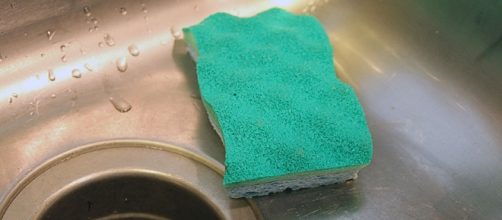A new study claims kitchen sponges are dirtier than toilet bowls and trying to keep them clean will not help at all. The study concluded that the only way to keep your dishes clean and your kitchen healthy is to throw out sponges every week.
Kitchen sponges are the dirtiest items in a household because it is packed with mold and bacteria due to it being used daily for cleaning the dishes and staying in an area where it is mostly wet. Huffington Post reported that the new study regarding sponges was published on the online journal Scientific Reports.
Why cleaning it won’t help reduce the bacteria
The study claimed that microwaving the sponge or washing it in an attempt to clean it only increases the bacteria. The study said that sanitation by boiling the item or microwaving it does reduce the bacterial load but regularly sanitized sponges have the same amount or more bacteria compared to the uncleaned sponges.
This happens because resistant bacteria survive the sanitation process and when they do survive, they rapidly re-colonize making the cleaned sponge even dirtier than before.
Details about the study
The researchers studied 14 sponges in Germany in 2012. They then bought seven new sponges this year. The used sponges were cleaned via heating and rinsing with hot and soapy water.
The researchers found out that the used kitchen sponges harbor more bacterial diversity.
The researchers then found 362 different types of bacteria from the used sponges, CBS News reported. Five of the 10 most common Types Of Bacteria that cause human disease were found in the sponges they examined.
The newly purchased kitchen sponges had nearly no bacteria so they concluded that replacing the kitchen sponges at least every week could help reduce the risk of getting sick.
The National Health Service of the United Kingdom said that people should not be surprised with the study. They warned, however, that poor kitchen hygiene could contribute to acquiring infections. The National Health Service advised people to always wash their hands after food preparation especially when one just handled raw meat.
There are also alternatives for kitchen sponges. One can make his or her own sponge by folding an old cloth and putting it inside a mesh tube. Other possible substitutes include using a scrub made of cotton and polyester or a scrub made of rubber. Just like the kitchen sponges, these should also be changed once in a while but per surveys, these alternatives last longer than sponges and are cleaner.


